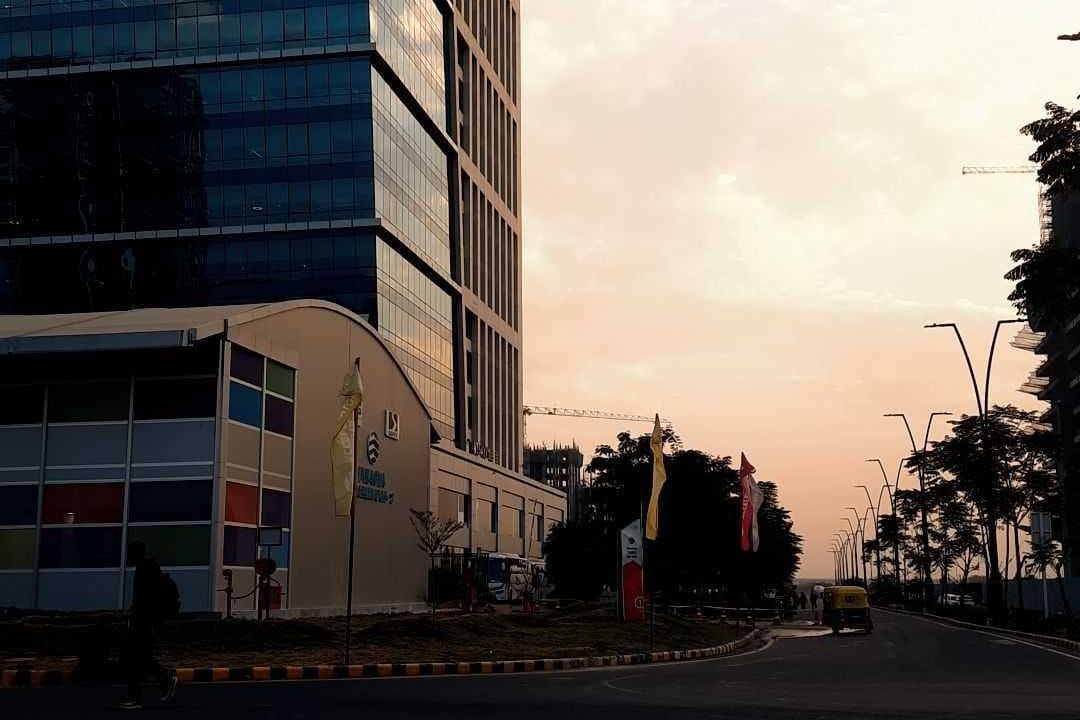A Detailed Overview of GIFT City Liquor Policy
The state of Gujarat has prohibited alcohol since it became a state by separating from Maharashtra in 1960, partly due to a Gandhian Ethos in the state.
GIFT City, located between Ahmedabad and Gandhinagar, is treated as an offshore entity for financial and tax purposes. It has been designed in line with other offshore entities like Singapore and Dubai.
Despite being located in Gujarat, it does not follow Gujarat’s policy on liquor. It is in line with global business standards. Through its liberal liquor policy, GIFT City will be an attractive destination for international investors, professionals, and corporate travellers. This policy not only augments the hospitality and tourism industry of the city but also increases the demand for commercial real estate.
This blog provides an exhaustive overview of GIFT City's liquor policy, business implications, the recent FL-3 licensing updates, and the rising hospitality and tourism opportunities.
Understanding the Liquor Policy in GIFT City
Gujarat has been enforcing prohibition legislation since 1960. GIFT City, a Special Economic Zone (SEZ)-operated, operates under a unique regulatory regime developed for global and domestic businesses.
On December 30, 2023, GIFT City received its FL-3 license, which allows GIFT City to have controlled access to liquor. Licenses will be provided to establishments like hotels, clubs, and wine-dine restaurants where individuals above 21 years of age can consume liquor.
This policy strikes a balance between business-friendly access and regulatory control, thereby making GIFT City a more desirable destination as an international financial centre.
Benefits of the Liquor Policy in GIFT City
1. Real Estate Growth
The liquor policy announcement has had a positive effect on real estate trends in GIFT City. Commercial rents in SEZ and non-SEZ zones have risen by 7%, according to real estate professionals in Gujarat.
Residential property prices have gone up 5-20%. The liquor policy has increased the attractiveness of GIFT City for investors, corporates, and hospitality companies. Active measures to provide international standard amenities in GIFT City will drive the real estate market with a solid run in the future.
2. Revival to Hospitality and Tourism
Regulated liquor availability after the recent modifications in FL - 3 licensing will turn GIFT City into a desirable business and recreational destination.
The liquor policy will allow luxury hotels, upscale restaurants, and fine bars to host high-profile conferences, as well as financial summits. This, in turn, will support GIFT City’s transition to a globally competitive financial destination.
3. Economic Impact
The liquor policy is a bold yet very strategic step which affects various sectors on a positive note. The policy will bring additional government revenue from liquor licensing fees and regulated sales. Other spillover effects would be employment generation in sectors such as real estate, hospitality and retail. Investments in high-end commercial properties will receive a boost due to the relaxed liquor policy.
Understand how the Union Budget 2024–25 impacts your investments and financial planning.
Liquor Licensing and Availability in GIFT City
GIFT City functions under the FL-3 license regime, which includes serving liquor in hotels, clubs, and luxury restaurants. The latest modifications to the FL-3 license have expanded, making it more accessible and business-friendly.
Feature | Earlier Rules | Recent Modifications |
Eligibility | 5-star hotels were the only ones eligible | Extended to 4-star hotels, clubs, and a few fine-dining restaurants |
Serving Areas | Limited to in-room service | Permitted in restaurants, bars, and specified banquet halls |
Guest Criteria | Restricted to foreign visitors and NRIs | Extended to cover professionals and local travellers with valid licenses |
License Fees & tenure | Rs. 1,00,000 per annum and a security deposit of Rs. 2,00,000 5 years tenure | NA |
Operating Hours | Limited hours for the sale of alcohol | Extended operating hours to match international standards |
The revised FL-3 license structure makes it more accessible for businesses in GIFT City to apply and operate alcohol-serving establishments, thereby fostering a global-standard hospitality ecosystem.

Comparison: GIFT City Liquor Policy vs. Other Cities
City | Liquor Policy | Key Benefits |
Mumbai | Widely available but regulated | High alcohol sale revenue, established nightlife culture |
Bangalore | Early closing timings but open liquor policy | A boom in the pubs and microbrewery sector |
Delhi NCR | Periodic restrictions but liberal | High tourist footfall, numerous restaurants and bars |
Dubai (DIFC Zone) | Licensed but strict | Fosters an organised and premium drinking culture |
GIFT City | Controlled access through FL-3 | Fosters business networking |
Challenges and Criticisms of the Liquor Policy
While GIFT City's liquor policy is a step in the right direction, it is not without challenges:
Restricted Access:
Compared to cities such as Mumbai or Delhi, where there is unrestricted access to liquor, GIFT City maintains a tightly regulated model with restricted access.
Forbidden Licensing Procedures:
Despite the relaxed rules recently, an FL-3 license is still administrative-burdened, making it challenging for small players to enter.
Cultural Resistances and Sensitivities:
The policy has been resisted by conservative politics and parties, which could lead to future policy rollbacks or additional restrictions. Public Interest Litigation(PIL) was made in the Gujarat High Court previously this February 2024, listing the possible agendas behind this revolutionary step by the government.
Balancing economic incentives with regulatory and cultural concerns is a challenge that will determine the long-term success of this policy.
Business and tourism opportunities in GIFT City
In spite of regulatory limitations, the GIFT City liquor policy offers major business and tourism opportunities:
1. Growth in Luxury Hospitality
Having licensed alcohol-serving establishments will make GIFT City comparable to other global financial centres, increasing its attractiveness to expats and business tourists.
More investment opportunities can be seen in the hospitality sector, with companies wanting to open flagship hotels in the city.
2. Growth in Corporate Networking and Events
The presence of liquor in business lounges, upscale restaurants, and exclusive clubs will allow for global-quality corporate networking and executive meetings. Global summits, financial conclaves, and diplomatic gatherings will make GIFT City more accessible, resulting in increased foot traffic for high-net-worth individuals and decision-makers.
Demand for high-end experiences like whiskey tastings, special cocktail evenings, and premium dining packages will increase.
3. Real Estate Expansion and Investment Overflow
Commercial developments in SEZ and non-SEZ regions are seeing increasing rental and property values, pulling in developers and investors seeking to ride the wave of the hospitality and F&B boom. High-end residential projects are picking up steam, with professionals employed in GIFT City looking for high-end housing that reflects their lifestyle.
The policy supports a mixed-use development, where office spaces are complemented with leisure and hospitality amenities, to make it a holistic business environment.
4. Enhancing Tourism and Lifestyle Features
While GIFT City itself is a financial centre, the new liquor policy facilitates the growth of luxury nightlife and leisure activities involving alcohol, which never existed in Gujarat. The launch of alcohol-inclusive holiday packages and corporate getaway plans can also further build the city's image as a contemporary, globally connected business hub.
By finding a balance between regulated access and international hospitality norms, GIFT City's liquor policy will give the required push to set the stage for long-term economic and infrastructure development.

GIFT City's liquor policy is a tactical change from the traditionally rigid approach of Gujarat’s prohibition policy. It aims to cater for the same standards as global financial centres and stands out as a lucrative proposition for enterprises, investors, and travellers alike.
The new FL-3 license has enabled hotels and restaurants to operate more easily, increasing the hospitality and tourism value of GIFT City. Still, there are problems, and businesses have to handle regulatory mechanisms delicately.
Future Outlook
As GIFT City develops further, the liquor policy is likely to be modified further to offer greater flexibility and scope. At present, it offers a nicely balanced model that is friendly to economic development without compromising regulatory integrity.
Other GIFT City Blogs
Related blogs | |
|---|---|

Comments
Your comment has been submitted